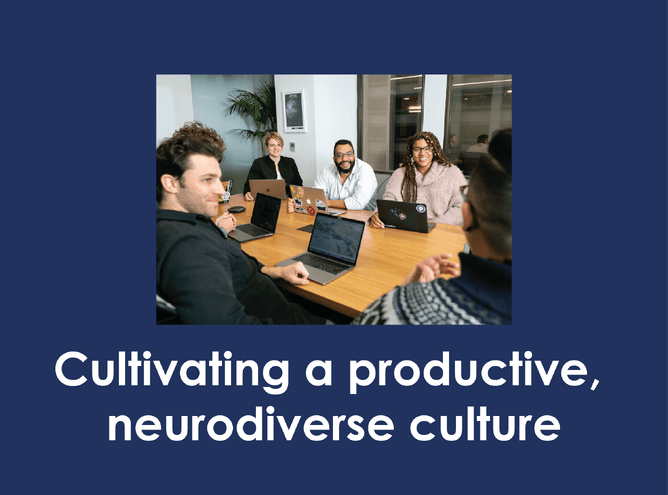Have you ever come out of a meeting reeling from what has just happened and then had to dash straight into another one? Perhaps some of you have had a whole day of this, or maybe even a whole week.
What isn't widely known, is that some brains can thrive in this environment based on their brain wiring and their ability to immediately dump what was and react to what is. However, for most brains, this causes busyness of thinking without moving into action.
With many staff members in busyness of thinking mode, with no time for reflection and action, imagine the impact on the organisation's overall performance.
The impact not just on the bottom line but also on mental well-being should be clear. Without time to reflect, consider the possibilities and replenish the brain, decisions are likely to be reactive and problem-focused rather than proactive and innovative/strategic.
Individuals are also likely to feel they are playing constant catch up resulting in feelings of overwhelm and burnout. In addition, this provides a powerful expectation to work more than is realistically sustainable.
For example, neuroscience tells us clearly, that back-to-back meetings can reduce rather than enhance productivity for most brains. Even something as simple as changing hour-long meetings to 45 minutes and having 15 minutes to take time to reflect on what has been and prepare for what is about to be, can enhance productivity over busyness. This is known as the ‘third space’ and there is a great Ted Talk on this -https://www.youtube.com/watch?v=dpk_dssZXqs.
However, the brains that thrive on activity and action can find these breaks frustrating until they learn how to use them in a way that works best for their brains.
Due to rigid organisational cultures and a lack of awareness of what different brains need to thrive, the solution to move from busyness to productivity is simple but requires a culture shift from CEO down to implement and sustain.
The importance of including different ways of doing the same thing to meet the needs of different brains is at the forefront of moving from busyness to productivity.
Within the right culture that is tailored in such simple terms to focus on helping different brains thrive evidenced from around the world (such as the four-day working week in Norway and other countries) people can do more in less time in a way that is nourishing rather than draining for their brain.
Simple changes in the following areas can result in dramatic changes in productivity:
How meetings are framed and run
How problems are moved into solutions
Where employees are allowed to work
How leaders are supported to fully appreciate the brains that surround them
How leaders are supported to tailor their approach to help the brains around them to thrive
With different brains working together in a psychologically safe environment, in a way that nourishes each brain, evidence shows that such teams are more effective than teams not supported in this way (Project Aristotle and Australian Institute of Directors).
To learn how your organisation can maximise the power of neurodiversity to decrease burnout and increase overall well-being and productivity please contact us.

